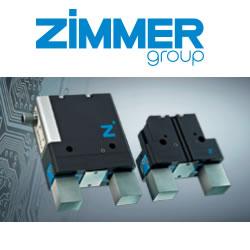First Autonomous Test Vehicle Developed Entirely By Toyota Research Institute Displayed At Prius Challenge Event At Sonoma Raceway
New platform expands sensor array and advances autonomous vehicle research Developed for flexible, plug-and-play testing of 'Chauffeur' and 'Guardian' research tracks
PALO ALTO, Calif., March 3, 2017 /PRNewswire/ -- The Toyota Research Institute (TRI) today displayed its 2.0 generation advanced safety research vehicle at the company's Prius Challenge event in Sonoma California. The all- new test vehicle will be used to explore a full range of autonomous driving capabilities.
Toyota's work on autonomous vehicles in the United States began in 2005 at its technical center in Ann Arbor, Mich. The company secured its first U.S. patents in the field in 2006. According to a report last year by the Intellectual Property and Science division of Thomson Reuters, Toyota holds more patents in the field than any other company.
"This new advanced safety research vehicle is the first autonomous testing platform developed entirely by TRI, and reflects the rapid progress of our autonomous driving program," said TRI CEO Gill Pratt.
The system is computationally rich, focusing heavily on machine vision and machine learning. The layered and overlapping LIDAR, radar and camera sensor array reduce the need to depend too heavily on high-definition maps - especially for near-term systems which will be designed for use in areas where such maps don't yet exist.
The platform is the second generation of the advanced safety research vehicle revealed to the public by Toyota at the 2013 Consumer Electronics Show. It is built on a current generation Lexus LS 600hL, which features a robust drive-by-wire interface. The 2.0 is designed to be a flexible, plug-and-play test platform that can be upgraded continuously and often. Its technology stack will be used to develop both of TRI's core research paths: Chauffeur and Guardian systems.
Chauffeur refers to the always deployed, fully autonomous system classified by SAE as unrestricted Level 5 autonomy and Level 4 restricted and geo-fenced operation.
Guardian is a high-level driver assist system, constantly monitoring the driving environment inside and outside the vehicle, ready to alert the driver of potential dangers and stepping in when needed to assist in crash avoidance.
"Basically, it is a smart vehicle designed to get smarter over time," said Pratt. "It will learn individual driver habits and abilities and will benefit from shared intelligence from other cars as data gathering, sharing and connectivity technologies advance. We believe Guardian can probably be deployed sooner and more widely than Chauffeur, providing high-level driver-assist features capable of helping mitigate collisions and save lives, sooner rather than later."
Toyota's approach to Automatic Emergency Braking shows a similar commitment. It will be standard equipment on nearly every model and trim level of Lexus and Toyota vehicles in the US by the end of 2017, five years ahead of NHTSA's 2022 target date.
Taking place on March 3, the Prius Challenge brings together a select group of entrepreneurs, technologists and Silicon Valley automotive enthusiasts to engage with the Toyota Research Institute while having some fun at the Sonoma Raceway. The goal: to increase dialogue and build a community around the topics of mobility, data science, artificial intelligence and robotics.
About Toyota Research Institute
Toyota Research Institute is a wholly owned subsidiary of Toyota Motor North America under the direction of Dr. Gill Pratt. The company, established in 2015, aims to strengthen Toyota's research structure and has four initial mandates: 1) enhance the safety of automobiles, 2) increase access to cars to those who otherwise cannot drive, 3) translate Toyota's expertise in creating products for outdoor mobility into products for indoor mobility, and 4) accelerate scientific discovery by applying techniques from artificial intelligence and machine learning. TRI plans to employ approximately 250 employees and is based in the United States, with offices in Stanford Research Park in Palo Alto, CA (TRI-PAL), in Kendall Square in Cambridge, Massachusetts (TRI-CAM), and in Ann Arbor, Michigan, near the University of Michigan campus (TRI-ANN). For more information about TRI, please visit www.tri.global.
Featured Product

Zimmer Group - THE PREMIUM GRIPPER NOW WITH IO-LINK
IO-Link is the first standardized IO technology worldwide for communication from the control system to the lowest level of automation.
